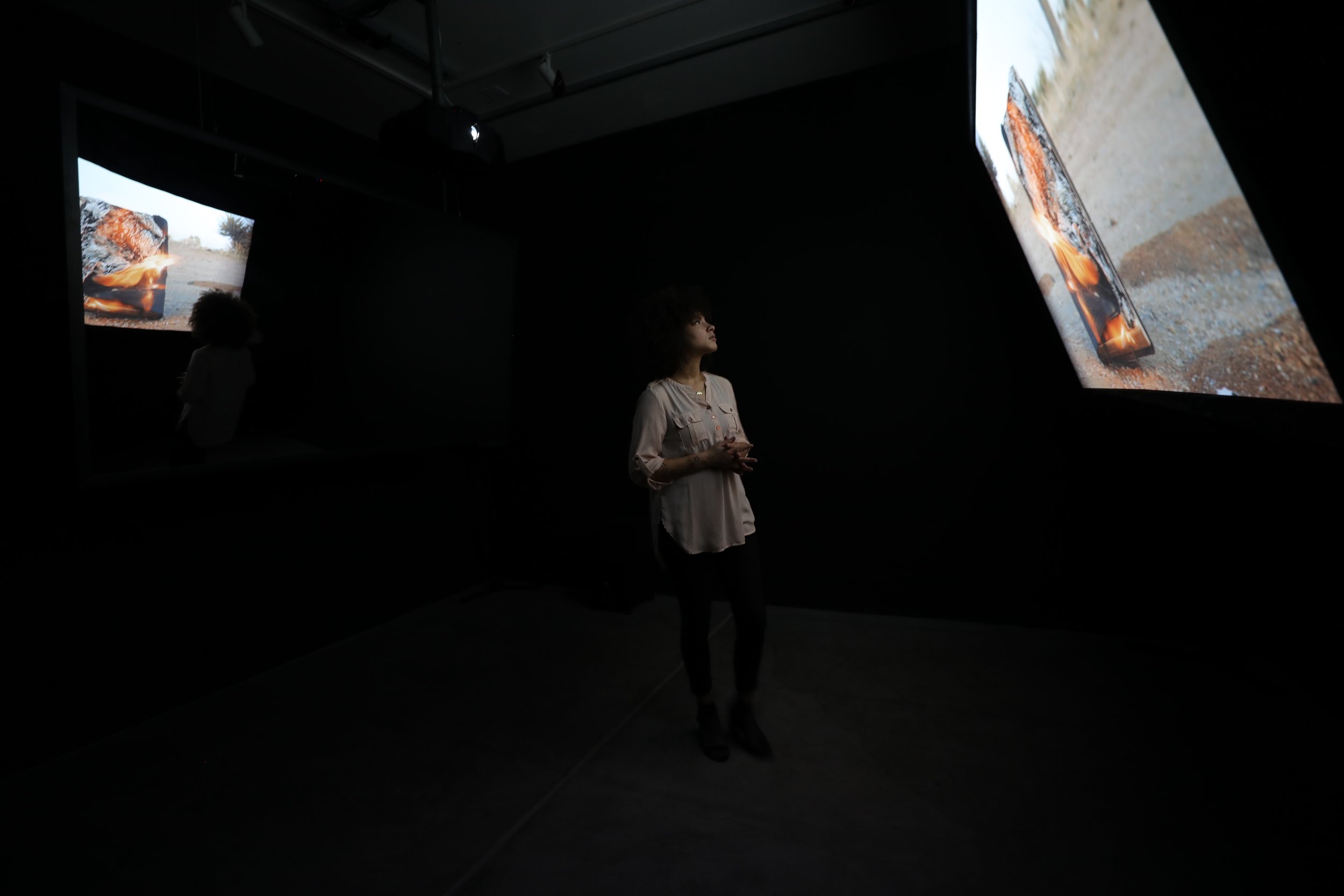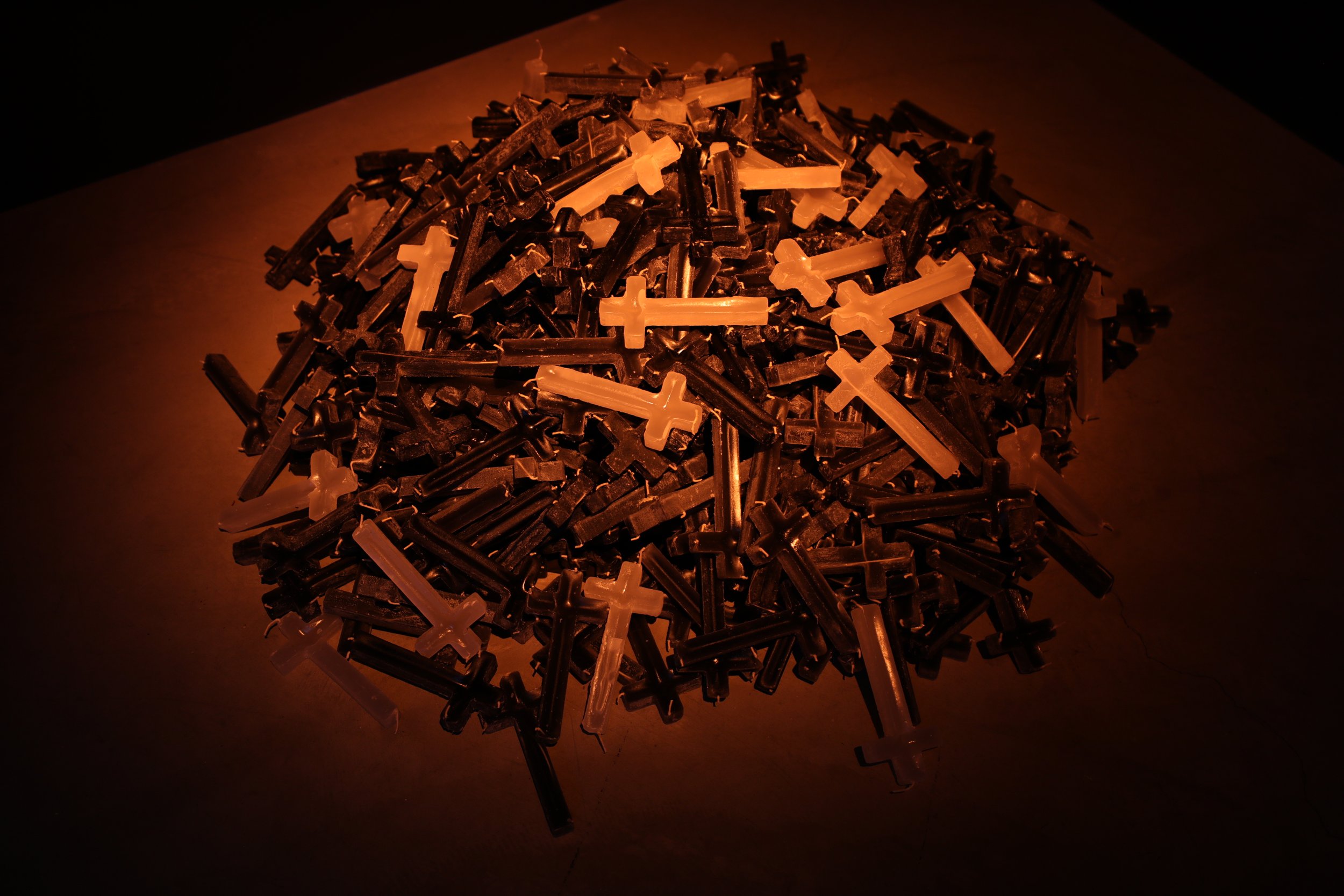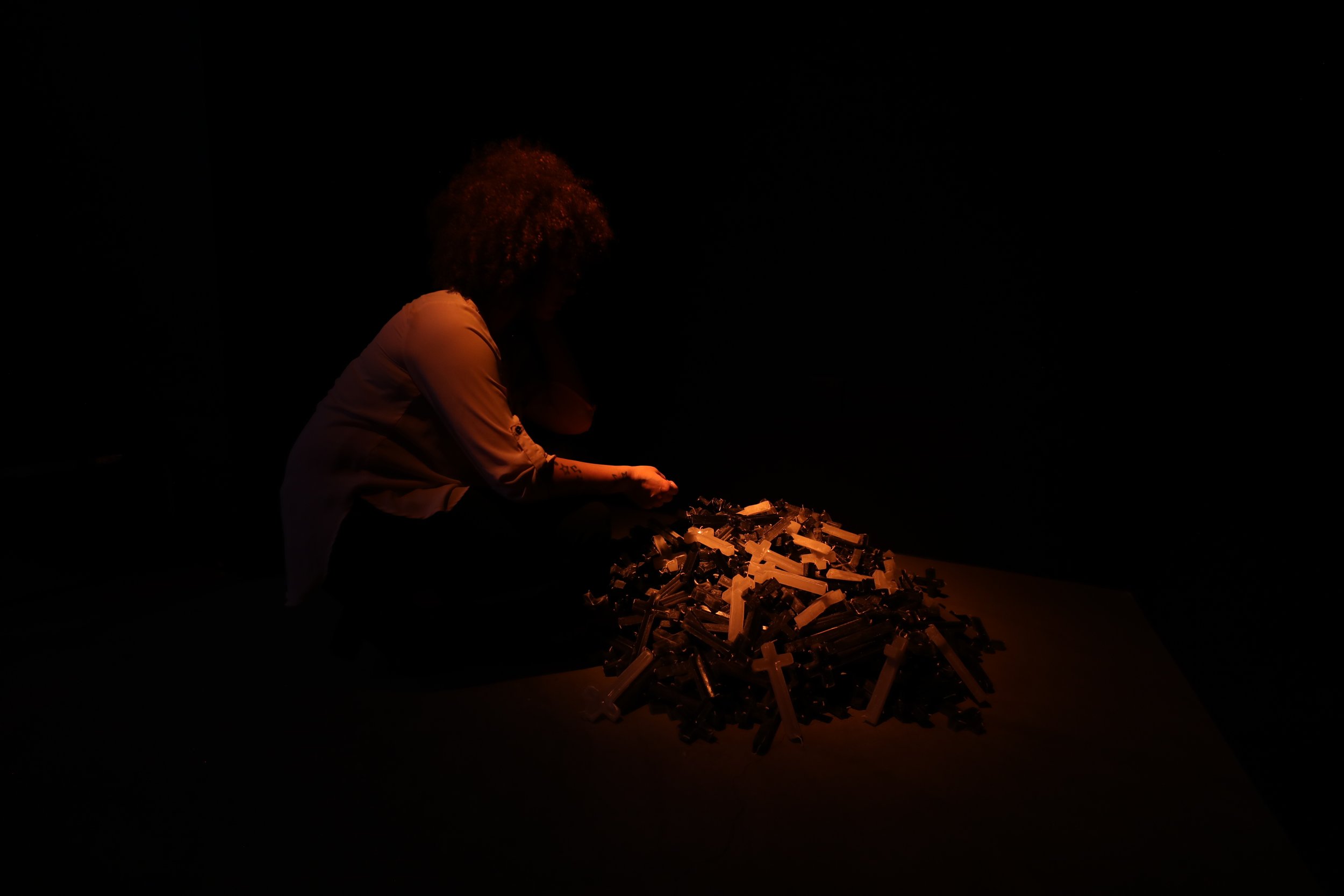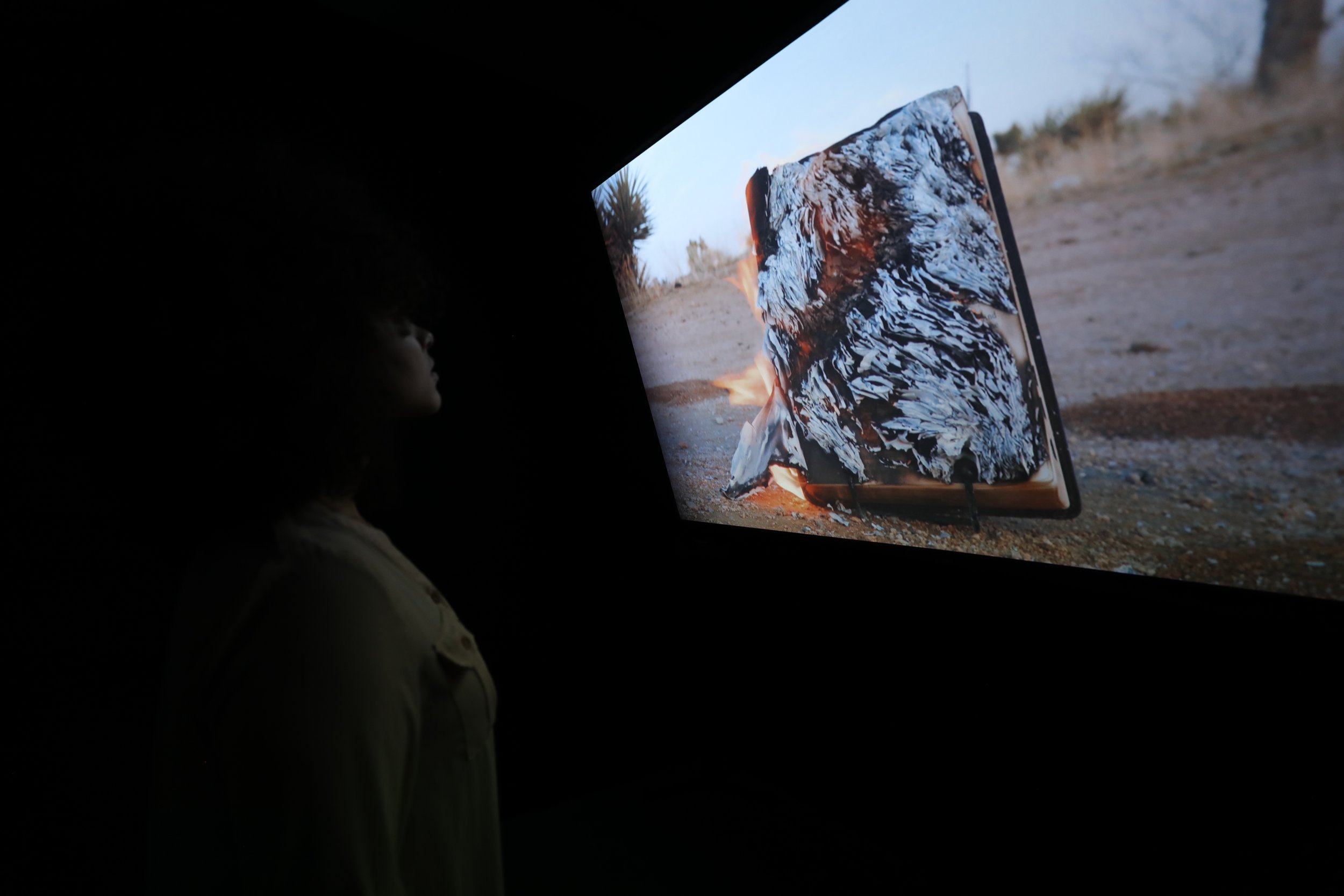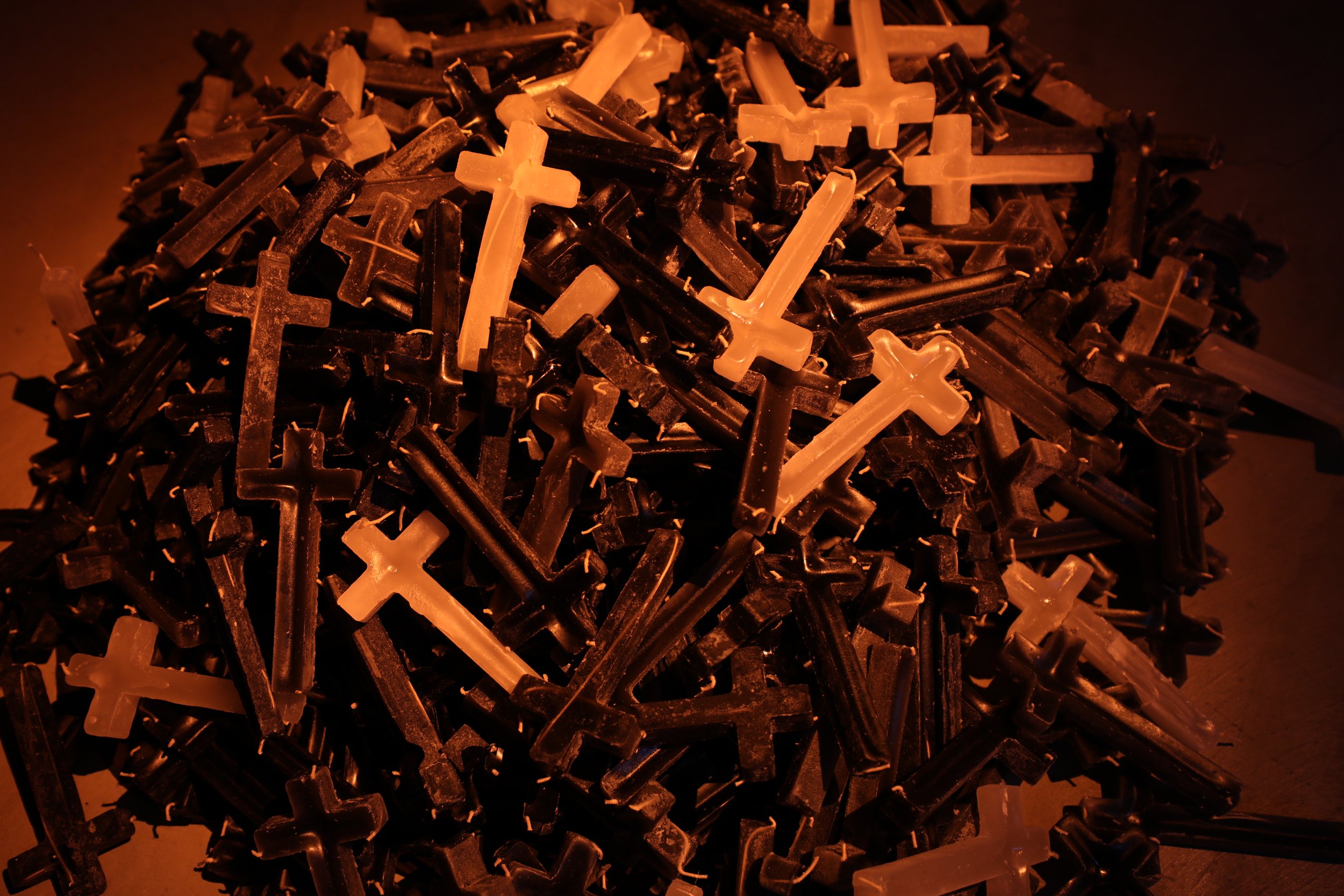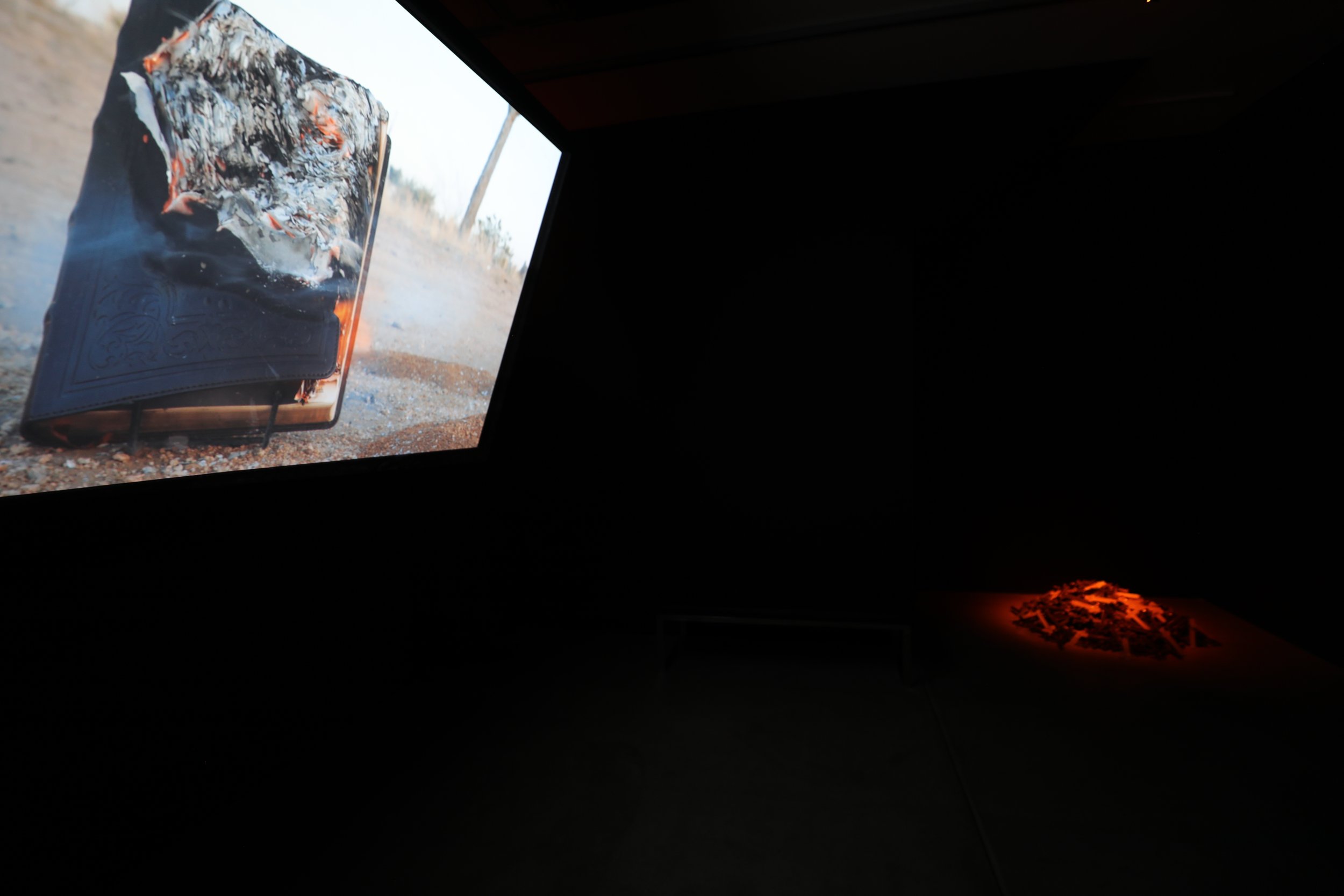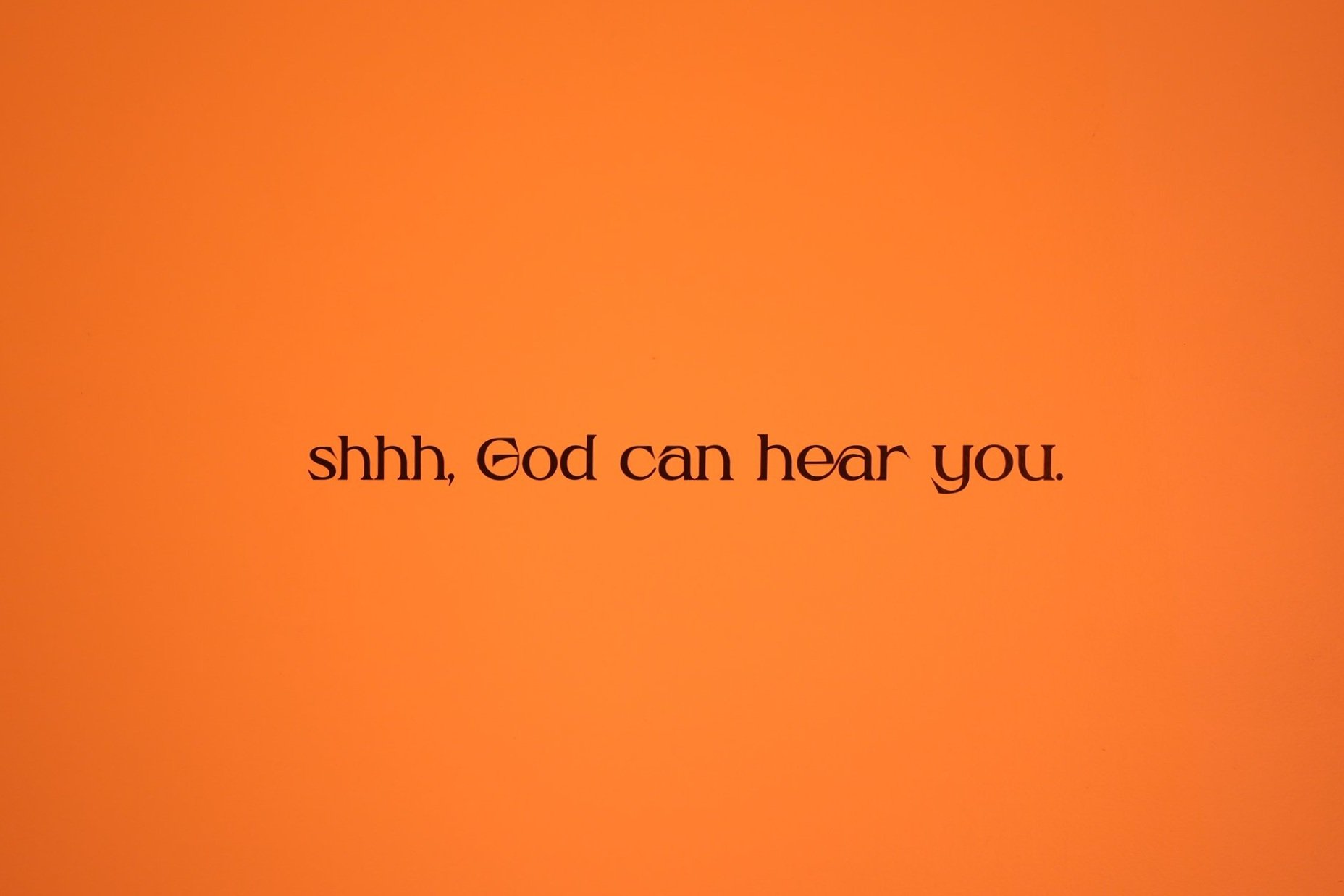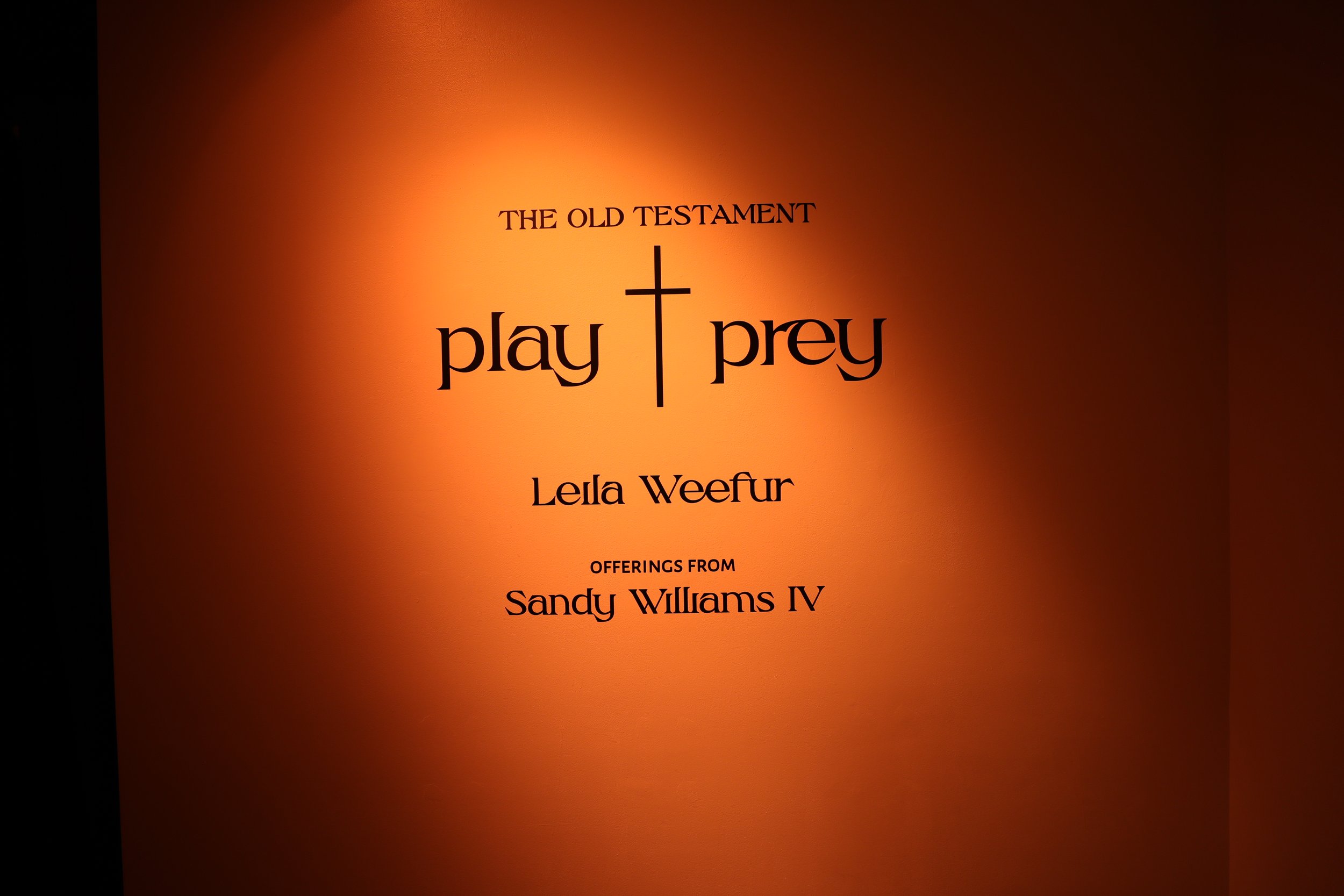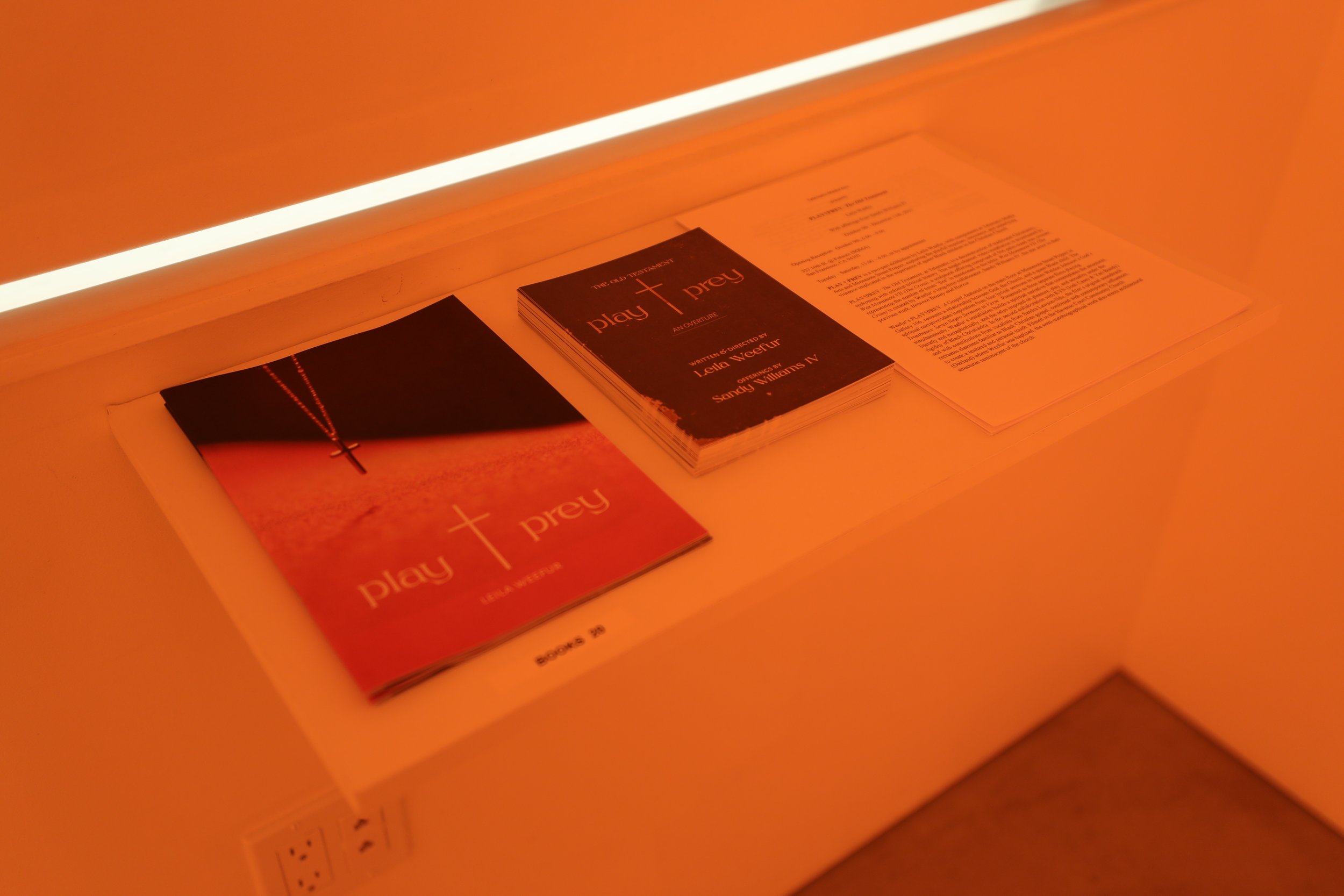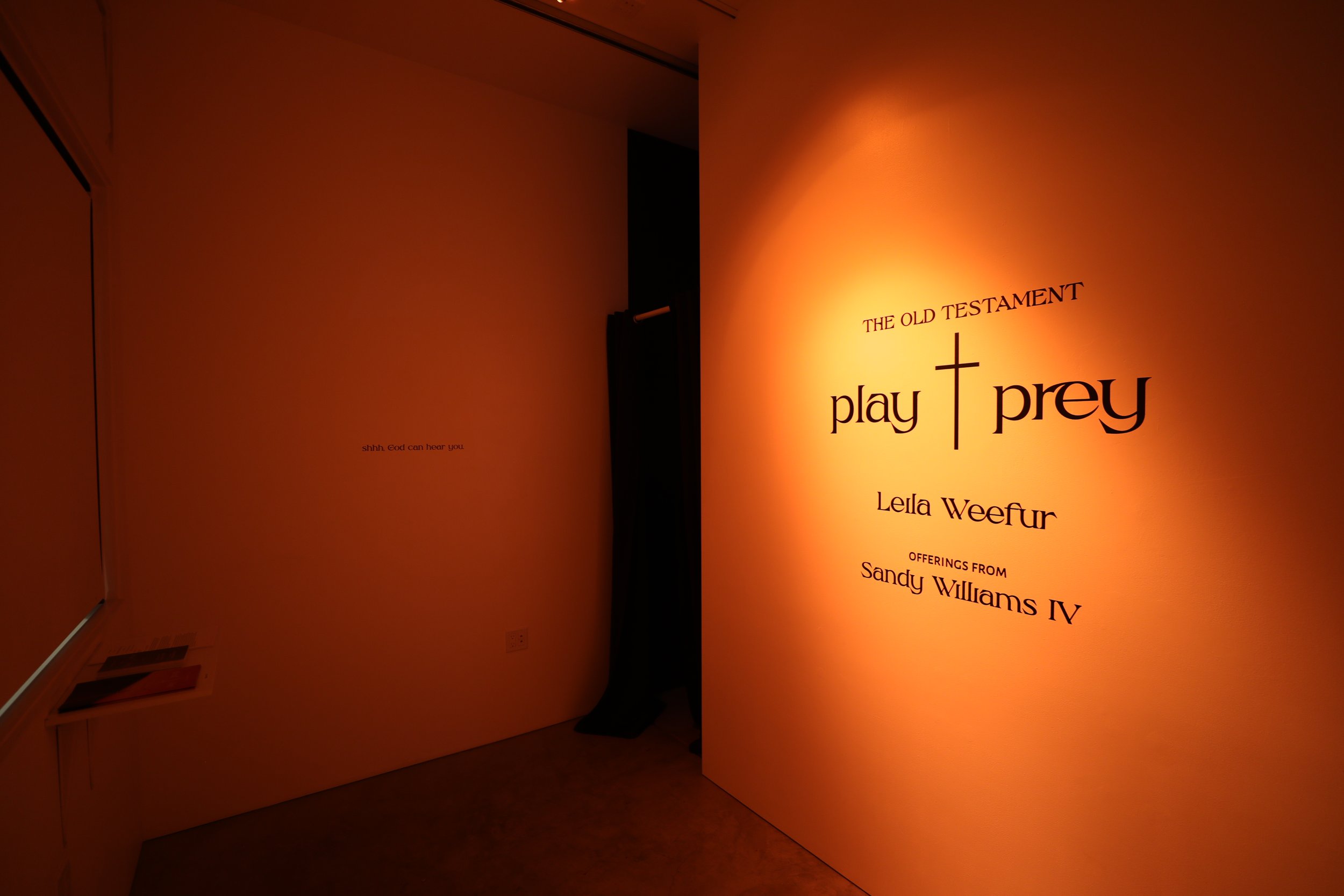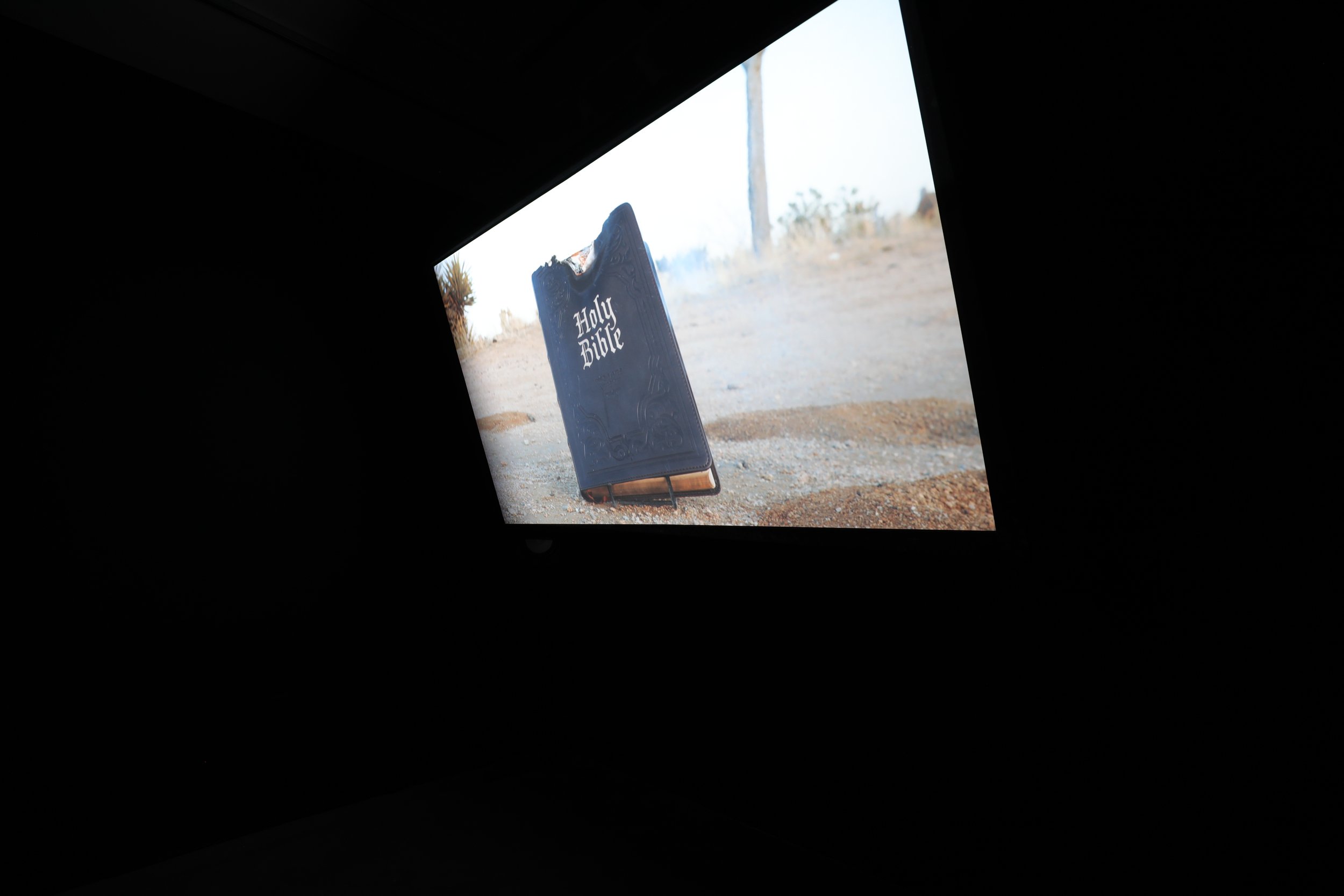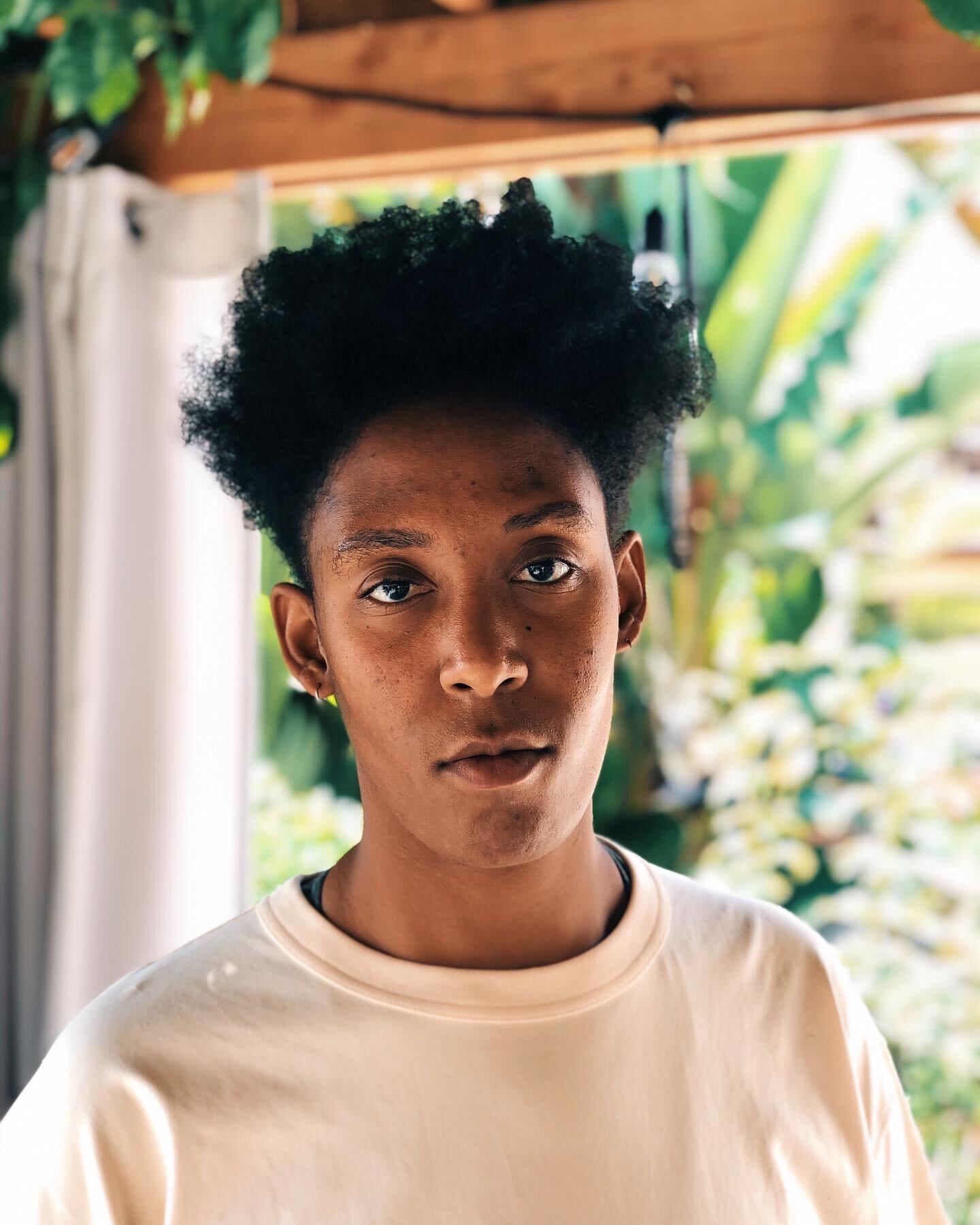Telematic Media Arts
presents
Leila Weefur, PLAY † PREY (The Old Testament), 2021, video still
PLAY † PREY is a two-part exhibition by Leila Weefur, with components at Telematic Media Arts and Minnesota Street Project, exploring the playful impulses, innocence, and underlying violence implicated in the experience of queer Black children in the Christian Church.
PLAY†PREY: The Old Testament, at Telematic, is a single-channel video installation, deconstructing of traditional Christianity, reckoning with colonial biblical history, and setting the stage for a queer Biblical reclamation. In the shadow of colonial book burning, the video’s tableaux punctuates a deeply fraught history where religion is mired in political power, and gives voice to the violence implicated in the experience of queer life in the Christian Church. The piece is accentuated by Wax Monument VII (The Cross), a sculptural offering comprised of 506 palm-sized wax crosses, representing the number of times “fire” is mentioned in the bible. Wax Monument VII (The Cross) is created by Weefur’s long-time collaborator, Sandy Williams IV, the star actor in their previous work, Between Beauty and Horror.
Video Installation, Single Channel, 2021
Original Running Time: 59:00 min
Weefur’s PLAY†PREY: A Gospel, featured on the main floor at Minnesota Street Project in Gallery 106, recounts a relationship between God, the Church, and a queer Black child. The spiritual narrative takes inspiration from four lyrical sermons in James Weldon Johnson’s God’s Trombones: Seven Negro Sermons in Verse.
In that great day,
People, in that great day,
God's a-going to rain down fire.
God's a-going to sit in the middle of the air
To judge the quick and the dead.
— “The Judgement Day” God’s Trombones: Seven Negro
Sermons in Verse, James Weldon Johnson
And God stepped out on space,
And he looked around and said:
I'm lonely
I'll make me a world.
— “The Creation” God’s Trombones: Seven Negro Sermons in Verse, James Weldon Johnson
ABOUT THE ARTIST
Leila Weefur (He/They/She) is an artist, writer, and curator based in Oakland, CA. Through video and installation, their interdisciplinary practice examines the performativity intrinsic to systems of belonging. The work brings together concepts of sensorial memory, abject Blackness, hyper surveillance, and the erotic. Weefur is a recipient of the Walter & Elise Haas Creative Work Fund and the MSP California Black Voices Project. Weefur has worked with local and national institutions including The Berkeley Art Museum and Pacific Film Archive, The Kitchen (NYC), SFMOMA, The McEvoy Foundation (SF), Museum of the African Diaspora (SF), and Smack Mellon (BKLYN), and the Wattis Institute (SF). Weefur’s writing has been published in SEEN by BlackStar Productions, Sming Sming Books, Baest Journal, and more. Weefur teaches, as a Lecturer, in the Department of Art and Art History at Stanford University.
PLAY†PREY: The Old Testament
Telematic Media Arts
October 9th - December 11th, 2021 Opening Reception: October 9th, 6:00 – 9:00
323 10th St. @ Folsom (SOMA)
San Francisco, CA 94103
Tuesday – Saturday, 11:00 – 4:00, or by appointment T: +1 415 336 2349
PLAY†PREY: A Gospel
Minnesota Street Project
October 16 – December 4, 2021
Opening Reception: October 16th, 6:00 – 9:00
1275 Minnesota Street (Dogpatch)
San Francisco, CA 94107
Gallery Hours: Tues – Saturday, 11 - 6 T: 415-243-0825
ALSO ON VIEW
Beyond the Sky
Curated by Leila Weefur
Featuring films by
Kalu Oji, Lebohang Kganye, Yo - Yo Gonthier, and Tabita Rezaire
At the Museum of the African Diaspora
Beyond the Sky is a presentation of 4 short films from a selection of contemporary African filmmakers. In this collection, each film moves seamlessly between the personal and metaphysical, connecting cinematic voices across the different regions of Africa.
Finding comfort floating in uncertainty, these filmmakers pose questions — some obvious, some hidden — in an attempt at guiding us toward futurity. While maintaining allegiance to specific regional traditions, the images presented in this series reframe traditional African images into a new digital vernacular. This series of moving images suspends you in a space that conjures personal memories and locates a common language in digital gestures.


